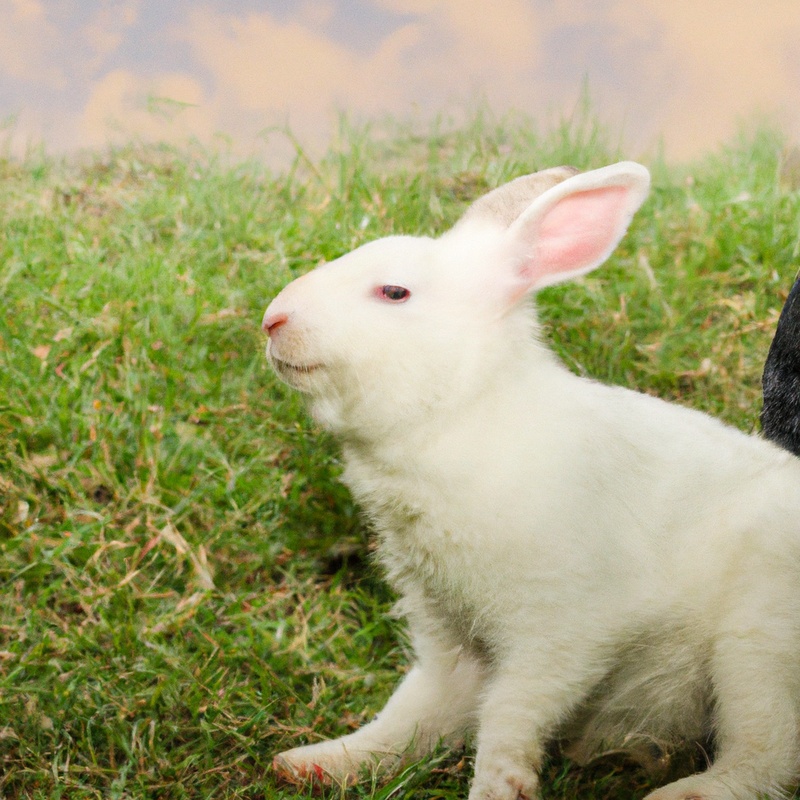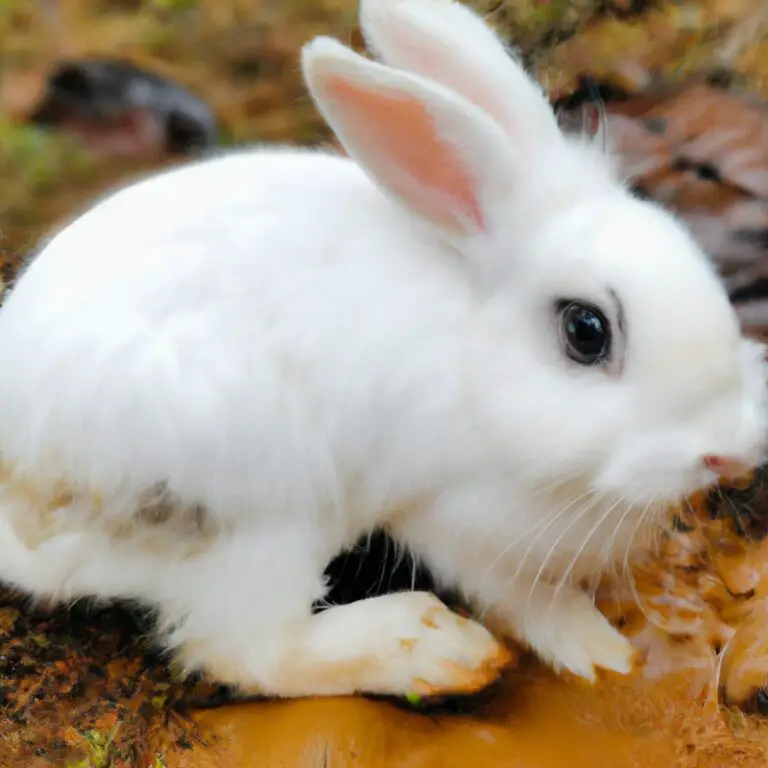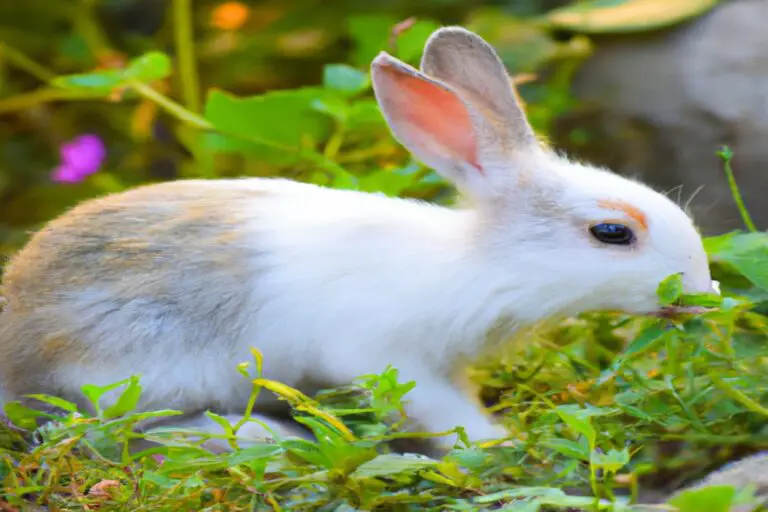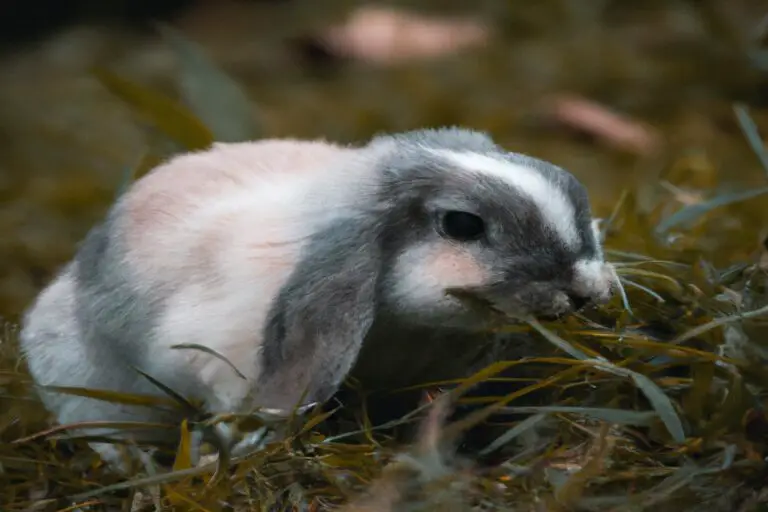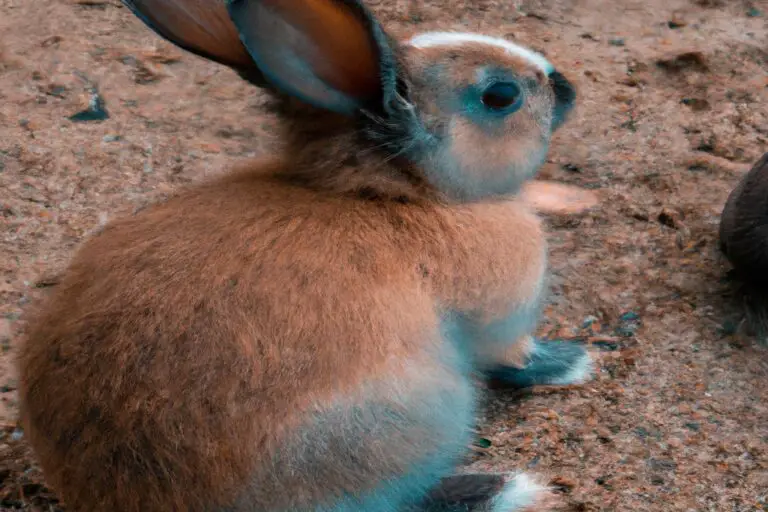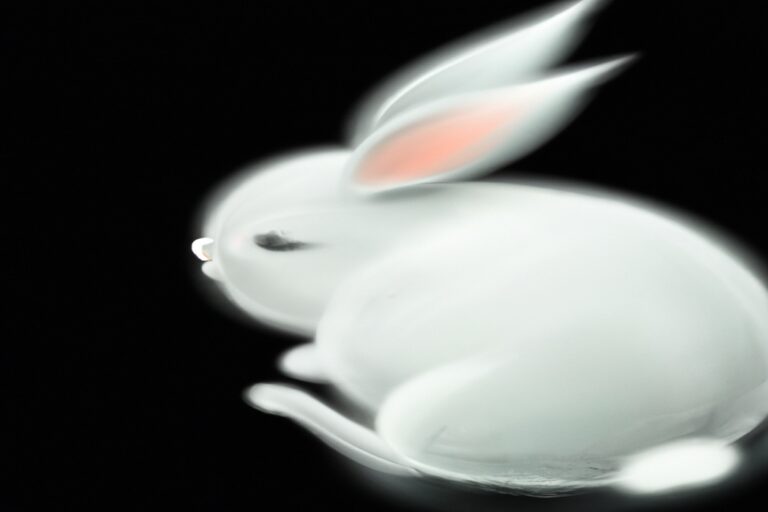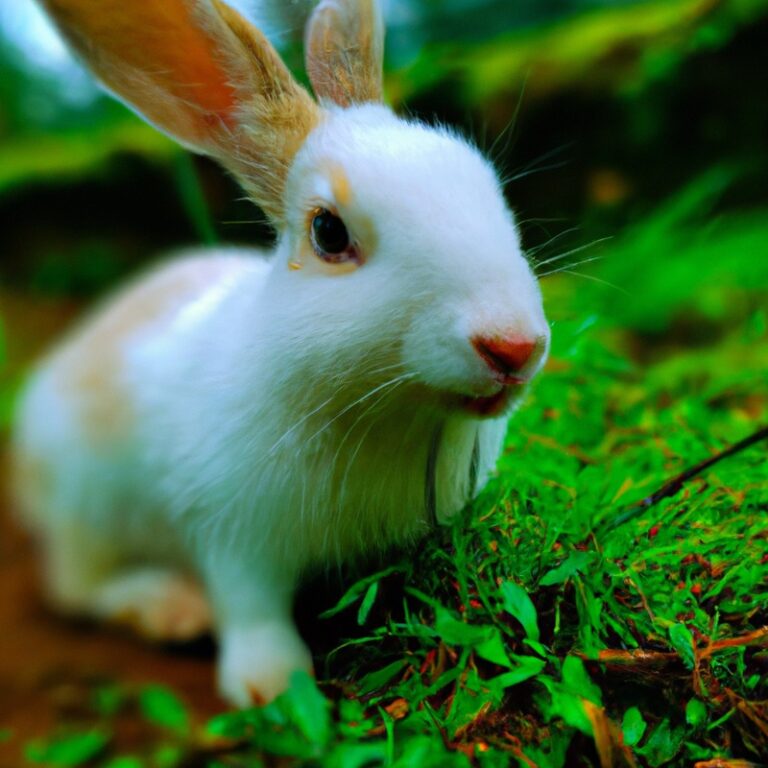Can Rabbits Have Corn Husks? Find Out Now!
Key Takeaways:
- Rabbits can eat small amounts of corn husks, but they should not be a substantial part of their diet.
- Corn husks should be given to rabbits in moderation to avoid digestive issues.
- Always remove any pesticides or dirt from the corn husks before feeding them to rabbits.
- It is important to introduce new food items gradually to rabbits to monitor any potential allergies or adverse reactions.
Hey there! Are you curious to know if rabbits can munch on corn husks?
Well, you’ve come to the right place! Rabbits are notorious for their love of munching on a variety of greens, but when it comes to corn husks, there are some things you should know.
In this article, we’ll dive into the nutritional value of corn husks, explore the potential benefits and risks for rabbits, and provide you with alternative options to ensure your furry friend stays healthy and happy.
So let’s hop right in and find out if corn husks are a suitable snack for your rabbit!
| Topic | Can Rabbits Have Corn Husks? |
|---|---|
| Species | Rabbits (Oryctolagus cuniculus) |
| Feeding Behavior | Herbivores (mainly eat plant-based food) |
| Digestive System | Complex digestive system optimized for breaking down fibrous plant material |
| Corn Husks | Not recommended as a regular part of their diet |
| Potential Risks | – Difficult to digest due to their high fiber content – May cause gastrointestinal issues such as diarrhea or bloating |
| Occasional Treats | Small amounts of corn husks may be given occasionally as a treat |
| Nutritional Value | Low nutritional value for rabbits; high in fiber |
| Other Suitable Foods | Hay, fresh leafy greens, veggies, pellets specifically formulated for rabbits |
| Consult a Veterinarian | Always consult a veterinarian before introducing any new food to your rabbit’s diet |
Can rabbits have corn husks?
Yes, rabbits can have corn husks, but there are important considerations to keep in mind.
Understanding the nutritional value of corn husks
Corn husks are typically not a significant source of nutrition for rabbits. While they are safe for rabbits to eat in small amounts, they contain minimal nutritional value and can be difficult to digest.
Rabbits require a diet rich in hay, fresh vegetables, and a small amount of pellets to ensure their nutritional needs are met.
Incorporating a variety of vegetables and high-quality hay into your rabbit’s diet is essential for their overall health and wellbeing.
Potential benefits of corn husks for rabbits
Rabbits can enjoy some benefits from eating corn husks. They are a good source of fiber, which aids in digestion and helps prevent gastrointestinal problems.
Corn husks can also provide mental stimulation for rabbits by giving them something to chew on, which is important for their dental health.
However, it’s essential to ensure that the corn husks are fresh, clean, and free from pesticides or other chemicals that could be harmful to rabbits. Additionally, corn husks should be given in moderation as part of a balanced diet that includes a variety of other vegetables and hay.
Possible risks and concerns of feeding corn husks to rabbits
Feeding corn husks to rabbits can pose several risks and concerns.
- Digestive issues: Corn husks are high in fiber and can be difficult for rabbits to digest, potentially leading to gastrointestinal problems like bloating, gas, and even intestinal blockages.
- Choking hazards: Rabbits may not chew corn husks thoroughly, increasing the risk of choking or getting food stuck in their throats.
- Pesticide exposure: Corn husks may contain residues of pesticides or herbicides, which can be harmful to rabbits if ingested.
- Nutritional imbalance: Corn husks lack essential nutrients and can be low in protein, calcium, and vitamins, leading to imbalances in a rabbit’s diet if consumed in large amounts.
- Fungal contamination: Corn husks can harbor molds or fungi, which can cause digestive and respiratory problems in rabbits.
To ensure your rabbit’s wellbeing, it is advisable to avoid feeding them corn husks and stick to a diet consisting of fresh hay, leafy greens, and appropriate commercial rabbit pellets.
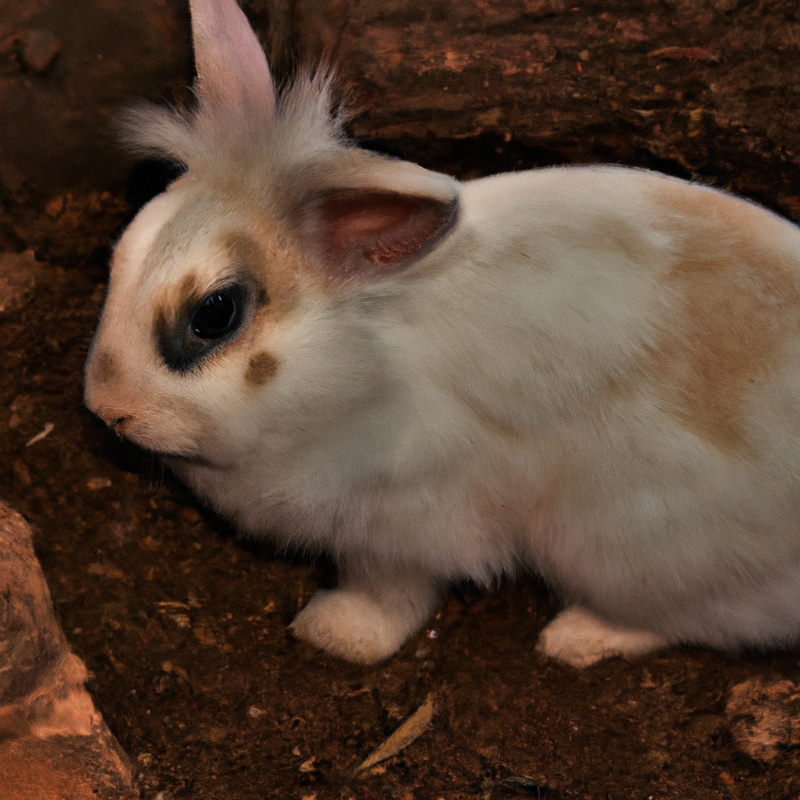
What should rabbits eat?
Rabbits should consume a balanced diet consisting of hay, fresh vegetables, and pellets.
The importance of a balanced diet for rabbits
A balanced diet is crucial for rabbits.
It provides them with the necessary nutrients for optimal health and wellbeing.
A well-balanced diet should consist of fresh hay, a variety of leafy greens, and a small amount of pellets.
Hay is an important source of fiber, which aids in digestion and prevents dental problems.
Leafy greens provide essential vitamins and minerals, while pellets offer additional nutrients.
It’s important to avoid feeding rabbits foods that are high in sugar, such as corn husks, as this can lead to health issues.
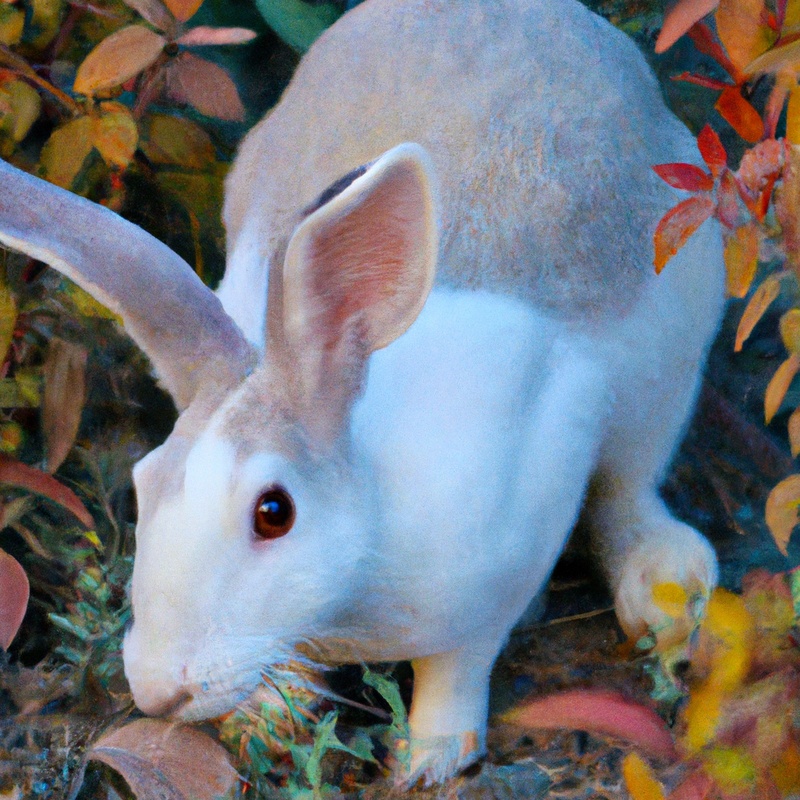
Recommended foods for rabbits
Rabbits should mainly eat hay, fresh greens, and a small amount of pellets. Hay is essential for their digestive health and should make up the majority of their diet.
Leafy greens like kale and spinach are suitable, but avoid feeding them too much cabbage or lettuce.
Pellets should be high in fiber and fed in small quantities. Treats like fruits and carrots should be given sparingly to prevent obesity.
Always ensure clean water is available.
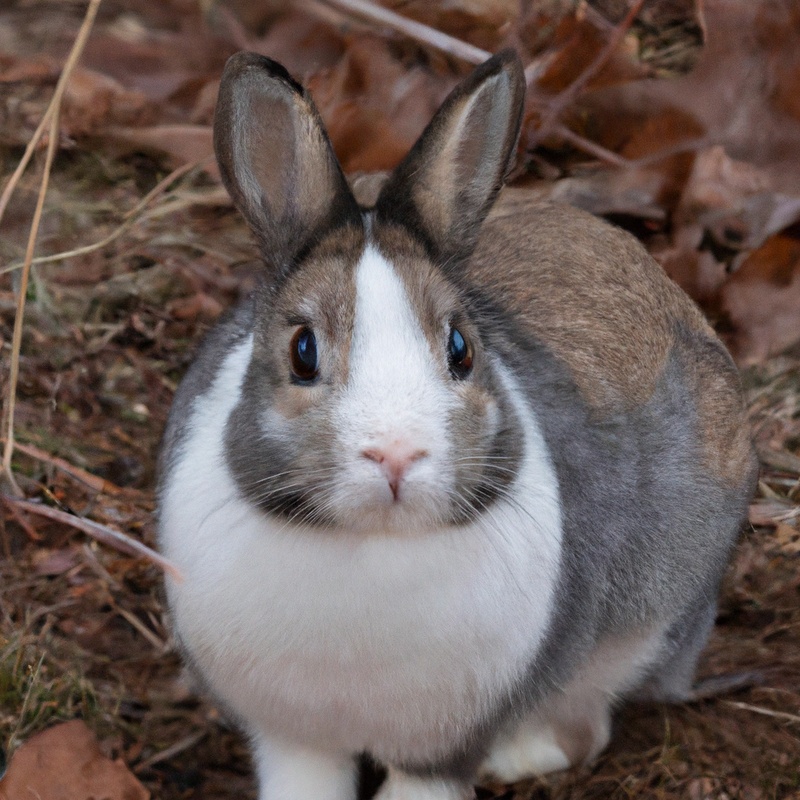
Foods to avoid feeding rabbits
Foods to avoid feeding rabbits:
- Chocolate: Chocolate contains theobromine, which is toxic to rabbits and can cause serious health issues.
- Avocado: Avocado contains a substance called persin, which can be harmful to rabbits and may cause digestive problems.
- Iceberg lettuce: Iceberg lettuce has a high water content and low nutritional value, making it difficult for rabbits to digest and potentially leading to diarrhea.
- Rhubarb: Rhubarb leaves and stems are toxic to rabbits and can cause digestive issues and even kidney failure.
- Potatoes: Raw potatoes and potato plants contain solanine, a toxin that can be harmful to rabbits if ingested.
- Onions and garlic: Onions and garlic can cause digestive upset and potentially damage red blood cells in rabbits.
- Nuts and seeds: While small amounts of nuts and seeds may be okay as an occasional treat, too much can cause digestive problems due to their high fat content.
- Dairy products: Rabbits are lactose intolerant, so avoid feeding them any dairy products like milk or cheese.
Remember, always consult with a veterinarian to ensure you are providing a safe and balanced diet for your rabbit.
Alternative options for rabbits
There are several alternative options you can consider for your rabbit’s diet.
Safe and healthy treats for rabbits
Rabbits can enjoy a variety of safe and healthy treats.
Some options include fresh fruits like apples, berries, and melons.
They can also have vegetables like carrots, bell peppers, and leafy greens.
Herbs such as mint, parsley, and cilantro are great too.
Just make sure to introduce new treats gradually and in small amounts to prevent digestive issues.
Avoid feeding rabbits chocolate, caffeine, onions, and anything high in sugar or salt.
Always consult with a veterinarian for specific dietary recommendations for your furry friend.
Hay and fresh vegetables: the foundation of a rabbit’s diet
Hay and fresh vegetables are essential for a rabbit’s diet. Hay provides necessary fiber and keeps their digestive system healthy.
It also helps wear down their teeth, which constantly grow.
Fresh vegetables offer important nutrients and variety. Examples include leafy greens like spinach and kale, as well as vegetables like carrots and bell peppers.
Remember to introduce new foods slowly and monitor your rabbit’s response.
Offer a variety of vegetables to ensure a balanced diet. Avoid giving them harmful vegetables like onions, garlic, or potatoes.
Consulting with a veterinarian for specific dietary recommendations
If you have questions about your rabbit’s diet, the best way to get accurate and specific recommendations is by consulting with a veterinarian.
A veterinarian will have knowledge of your rabbit’s unique needs and can provide guidance on their dietary requirements.
They can evaluate your rabbit’s health, consider any underlying conditions, and recommend the appropriate foods and portion sizes for your furry friend.
Remember, each rabbit is different, so it’s important to seek professional advice to ensure you are providing the best nutrition for your pet.
Frequently Asked Questions
Can rabbits eat corn kernels?
Yes, rabbits can eat corn kernels. They are safe for rabbits to consume as long as they are given in moderation.
Corn kernels should only be considered as an occasional treat in a rabbit’s diet.
It is important to note that the high sugar and carbohydrate content in corn can be harmful if given in excess. Rabbits should primarily have a diet consisting of hay, fresh vegetables, and a limited amount of specifically-formulated rabbit pellets.
Can rabbits consume corn leaves or stalks?
Rabbits can safely consume corn leaves and stalks in moderation.
These parts of the corn plant are non-toxic and can provide nutrients and fiber for rabbits.
However, it’s important to introduce corn leaves and stalks gradually into their diet to prevent digestive issues.
Additionally, make sure the corn is fresh and pesticide-free.
Always monitor your rabbit’s reaction and consult a veterinarian if you have any concerns.
Are there any other vegetables that rabbits should avoid?
There are a few other vegetables that rabbits should avoid. These include onions, garlic, and potatoes.
These vegetables can cause digestive issues and even be toxic to rabbits.
It’s best to stick to safe options like leafy greens, carrots, and bell peppers. Always consult with a veterinarian to ensure you’re providing the right diet for your furry friend.
Final Verdict
While corn husks may seem like a tempting treat for rabbits, it is important to consider their nutritional value and potential risks. While corn husks are low in calories and can provide some fiber, they should be offered in moderation due to their high cellulose content.
Additionally, there is a risk of pesticide exposure and digestive issues.
Ultimately, hay and fresh vegetables should be the foundation of a rabbit’s diet, supplemented with safe and healthy treats. It is always best to consult with a veterinarian for specific dietary recommendations for your furry friend.

